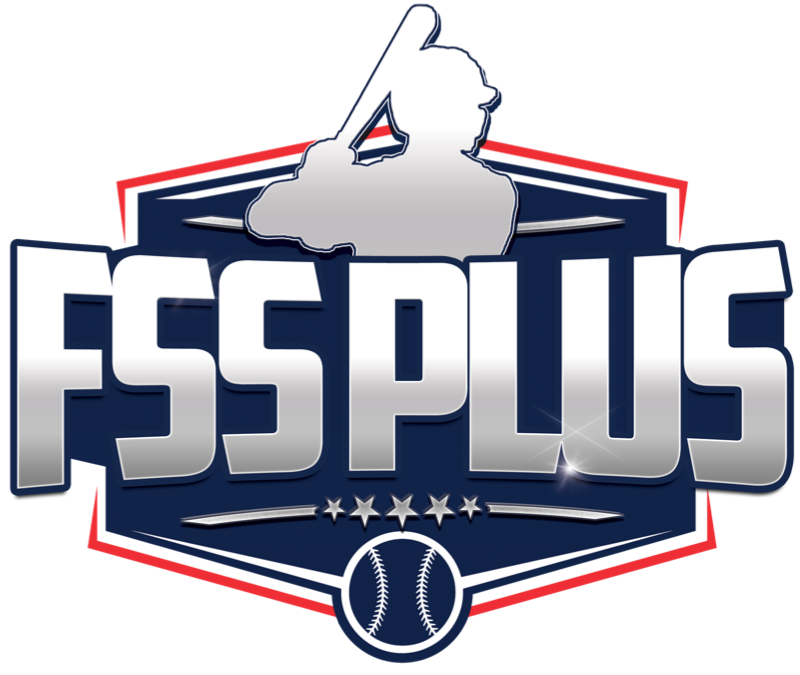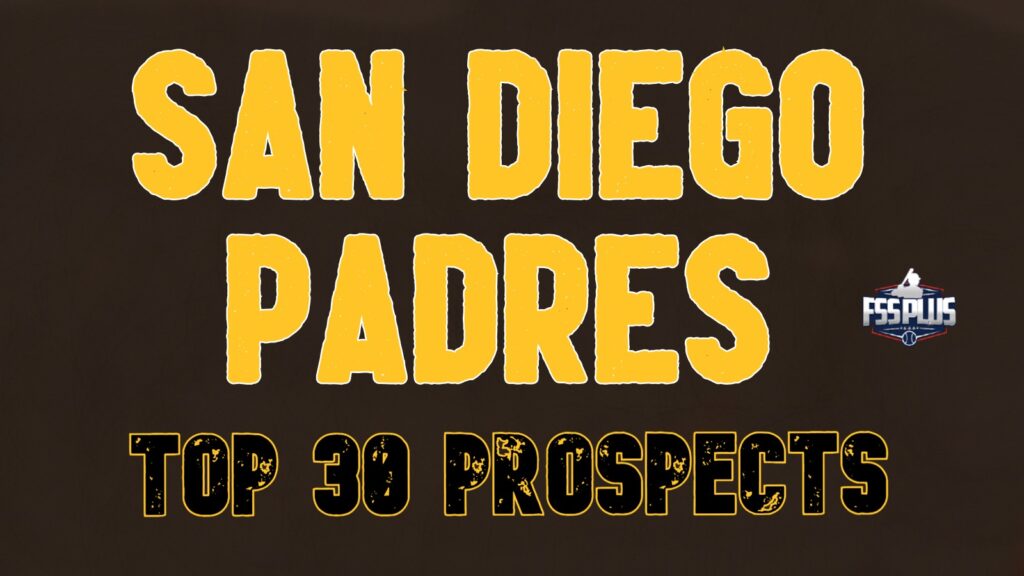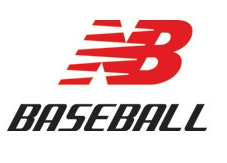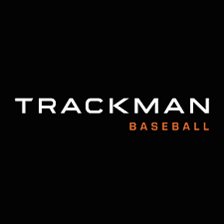The 2024 Preseason Top 30 lists are built around the idea of certainty and future Role. Similar to industry projection systems such as Future Value (FV), Overall Future Potential (OFP), and Grade, Role is a way to describe to what degree a player will add value to his organization at peak.
Our scale is a bit more conservative than other grading systems. We take into account recent seasonal performance, proximity to impact, metric/data analysis, and industry conversations to build a case for the most likely outcome for any given player.
It is important to note these Role labels are fluid and can change as a player moves up the developmental ladder. It is not uncommon for a player to change his role projection over even one month. Players jump from a Role 35 to a Role 40 quite quickly.
Things like mechanical adjustments and physical maturation can alter a player’s projection seemingly overnight. Players change. Keep that in mind.
Below is our Role chart used to place future projection on players.
| ROLE | DESCRIPTION |
|---|---|
| 20 | No organizational value. Non-prospect. |
| 30 | Organizational value, filler. Likely peaks at Triple-A or below. |
| 35 | Potential up-and-down, Quad-A prospect. Has some tools. Development necessary to secure prolonged MLB role. |
| 40 | Back-up at MLB level. No. 5 starter on non-competitive team. Depth. |
| 45 | Potential starter on contender. Bench player for championship-level team. |
| 50 | Starter on a championship-level team. Lacks star ceiling. Steady. Potential No. 4 starting pitcher. |
| 55 | Potential all-star. Some impact. Above average big-league regular. Mid-rotation starter on a contender. |
| 60 | All-star level player. Impact. Middle-of-the-order bat. No. 2 starter on good team. |
| 70 | Perennial all-star. Will contend for seasonal awards. Potential MVP/Cy Young upside. No. 1 starting pitcher. Ace. |
| 80 | Hall of Fame upside. Generational. MVP/Cy Young Favorite some years. Organizational pillar who can carry an entire franchise at times. |
You will not find players with a sub-50 Role on our Top 100 Prospect List. You are also unlikely to find any sub-35 Role players on a Top 30 board. Generally, organizations will have at least 30 players with big-league projection.
All rankings and roles by Joe Doyle
Player notes by Jason A. Churchill
The Padres have had at least an interesting farm system, often one ranked among the elite in the game, for nearly a decade now, but there’s not a lot to show for those efforts.
The club has two postseason appearances since 2006 and two winning records in a full season under GM A.J. Preller.
Furthermore, the Padres boast very few homegrown talents. Even if we count Fernando Tatis Jr., who was not originally signed by the club but acquired before he played a pro game, San Diego has not taken advantage of the strength of their farm, and the trades that have decimated the top of the system have not resulted in winning — or long-term impact.
Considering the economic dynamic in baseball in 2024, the Padres may choose a more patient approach with their top prospects and avoid trading them away as they did in the Juan Soto deal.
| RANK | PLAYER | POS | ROLE |
|---|---|---|---|
| 1 | Ethan Salas | C | 60 |
| 2 | Jackson Merrill | SS | 60 |
| 3 | Robby Snelling | LHP | 55 |
| 4 | Dylan Lesko | RHP | 50 |
| 5 | Drew Thorpe | RHP | 50 |
| 6 | Leodalis DeVries | SS | 50 |
| 7 | Adam Mazur | RHP | 45 |
| 8 | Jairo Iriarte | RHP | 45 |
| 9 | Dillon Head | OF | 45 |
| 10 | Samuel Zavala | OF | 45 |
Ethan Salas is one of the elite prospects in baseball, remarkably reaching Double-A at age 17, though he didn’t hit at all in the 18 games after Low-A.
Salas has plus power, a shot to hit .270 with high-end on-base percentages, and his defensive prowess is laced with polish and plus tools across the board.
He’ll spend 2024 at age 18 and may head back to Double-A, suggesting he may be a teenager when he makes his big-league debut. Salas has every chance to be an MVP in this league.
Jackson Merrill, who reportedly will play some outfield this spring, is more than capable at his natural shortstop and offers a chance to hit .300 with 20-homer power.
He’ll be 21 in April and if he doesn’t make the big club out of spring training, he’s not far off thanks to an advanced feel for hitting.
Robby Snelling was dominant last season, flashing mid-90s velocity, a nasty curveball, and consistent command that at times was elite.
He won’t turn 20 until after the 2024 season is over and likely starts the year in Double-A, perhaps a half-season from Petco Park.
Drew Thorpe was acquired in the trade that sent Soto to the New York Yankees and now he’s part of a good group of arms at the top of the system.
Like Snelling, Thorpe too is racing through the minors, having made five starts in Double-A last season, one year after the Yankees snagged him in Round 2.
Thorpe doesn’t throw hard (up to 93 most starts, mostly 89-91 mph) and the pitch lacks ideal shape and late life, so he must command it well, which he does, and has two major-league secondaries.
It’s a No. 4 ceiling, but he’s probably in San Diego by the All-Star break.
| RANK | PLAYER | POS | ROLE |
|---|---|---|---|
| 11 | Jakob Marsee | OF | 45 |
| 12 | Graham Pauley | 3B | 40 |
| 13 | Victor Lizarraga | RHP | 40 |
| 14 | Eguy Rosario | OF | 40 |
| 15 | Ryan Bergert | RHP | 35 |
| 16 | Nathan Martorella | 1B | 40 |
| 17 | Homer Bush Jr. | OF | 40 |
| 18 | Brandon Nett | RHP | 40 |
| 19 | Randy Vasquez | RHP | 40 |
| 20 | Kannon Kemp | RHP | 35 |
| 21 | Blake Dickerson | LHP | 35 |
| 22 | Yendry Rojas | SS | 35 |
| 23 | Jagger Haynes | LHP | 35 |
| 24 | Brandon Valenzuela | C | 35 |
| 25 | J.D. Gonzalez | C | 35 |
| 26 | Marcos Castanon | 2B/3B | 35 |
| 27 | Garrett Hawkins | RHP | 35 |
| 28 | Rosman Verdugo | SS | 35 |
| 29 | Noel Vela | LHP | 35 |
| 30 | Lamar King Jr | C | 35 |
Jakob Marsee started to show real power last season, hitting 16 homers in just over 450 at-bats and maintaining high walk rates and reasonable strikeout numbers.
The left-handed hitter has plus speed, giving him a chance at some centerfield value.
Homer Bush Jr. hit his way to Double-A in his first taste of pro ball after the Padres took him in Round 4 last July out of Grand Canyon.
His swing doesn’t generate consistent backspin and without an adjustment he may max out in the 10-12, um, homer range, but it’s plus speed and defense and a chance to tap into more pop.
Noel Vela sits 89-92 mph from the left side but pumps in two effective offspeed pitches in a plus curveball and average changeup with sink. He uses his front side to create deception, and when he throws strikes he profiles as a back-end starter.
Vela has yet to finish a pro season with a walk rate under 11% and faced just five batters last season before an elbow injury ended his season.
- The Diamondbacks return for Josh Naylor… - July 25, 2025
- Five 2025 draft picks that could win Rookie of the Year in 2026 - July 21, 2025
- 2025 MLB Draft: The predictions you didn’t know you needed - July 16, 2025












